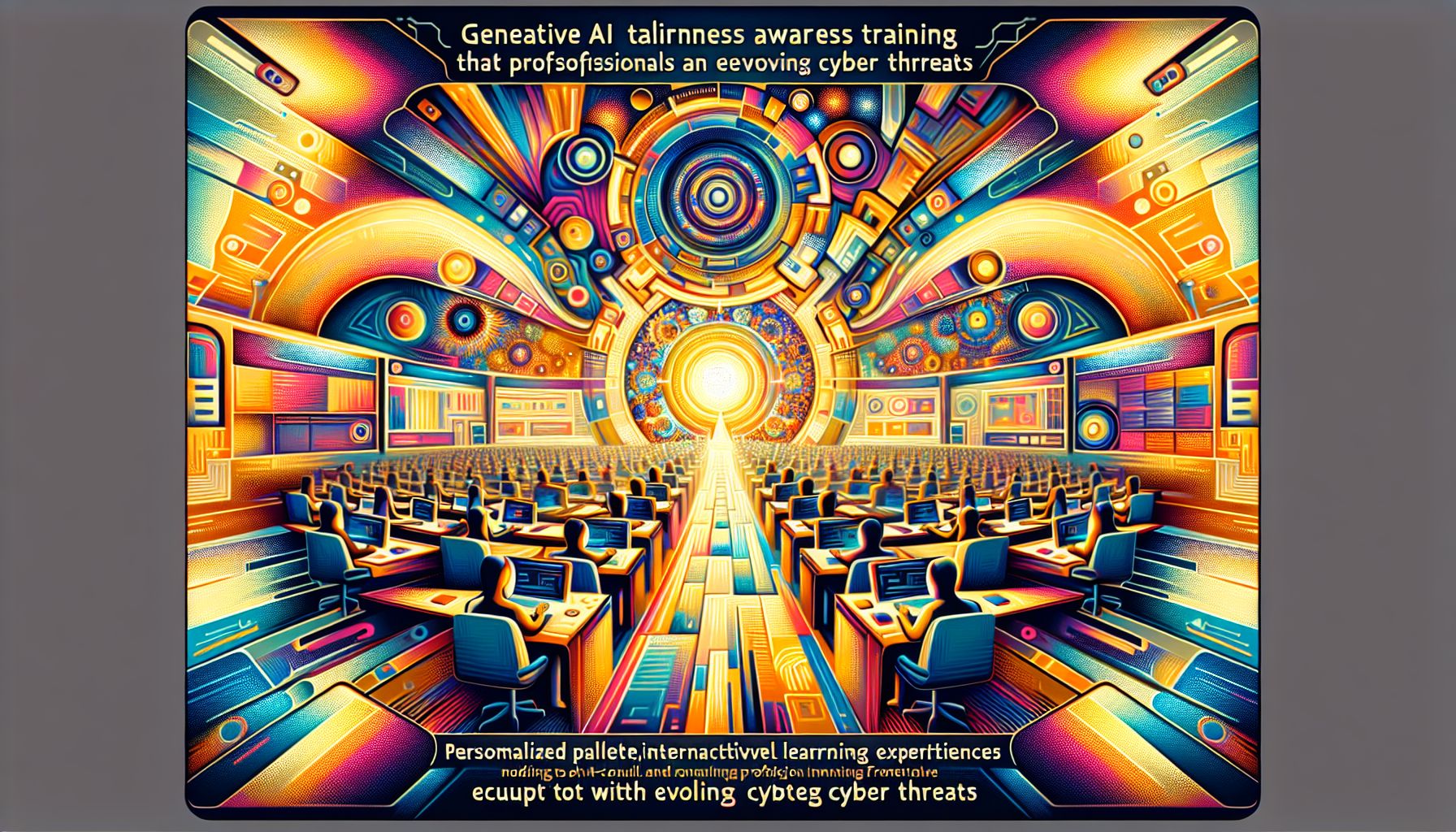Generative AI Transforms Cybersecurity Awareness Training

Amsterdam, Saturday, 4 January 2025.
Generative AI enhances cybersecurity training by offering personalized, interactive learning experiences, crucial for preparing professionals against evolving cyber threats.
Revolutionary Training Approach
A groundbreaking webinar scheduled for February 7, 2025, at Rensselaer Polytechnic Institute (RPI) will showcase how generative AI is revolutionizing cybersecurity awareness training [1]. Led by Dr. Brian Callahan, Director of the Rensselaer Cybersecurity Collaboratory, and researcher Shoshana Sugerman, the event will explore critical developments in AI-driven security education, including the implementation of Prompt Engineering and the integration of AI capabilities in training methodologies [1].
AI’s Dual Impact on Security
Generative AI represents a significant advancement in artificial intelligence technology, capable of producing various forms of data including text, images, and videos based on learned patterns [2]. In cybersecurity training, this technology is particularly valuable as it can create realistic simulation scenarios and personalized learning experiences [1]. The technology’s ability to process both text and images, similar to systems like GPT-4 [2], enables more comprehensive and interactive training modules that can adapt to individual learning needs [1].
Implementation and Industry Response
The integration of generative AI in cybersecurity training comes at a crucial time, as China leads global adoption with an 83% usage rate, compared to the global average of 54% [2]. Recent developments have shown that these systems can operate effectively on consumer devices [2], making the technology more accessible for training purposes. However, experts emphasize the importance of maintaining human expertise alongside AI capabilities [1], ensuring a balanced approach to cybersecurity education.
Future Implications and Challenges
As we move forward, the impact of generative AI on cybersecurity training faces both opportunities and challenges. According to UN Secretary-General António Guterres, generative AI could contribute between $10 and $15 trillion to the global economy by 2030 [2]. However, concerns about potential misuse for cybercrime and the need for proper regulation remain significant challenges [2]. The technology’s rapid evolution necessitates continuous updates to training methodologies and careful consideration of ethical implications in its implementation [1].

